7 Common Myths about Solar Energy in India
Myths About Solar Energy in India -
Solar power is not only less expensive, but it is also the most abundant source of clean energy. Although people are much more aware of solar energies and their importance, there are still some misconceptions about solar energy. Here are some common myths about solar energy that need to be debunked in order to speed our country’s green energy adoption.
1. All solar systems keep working during power outages.
In the event of a power outage, a building powered by a grid-connected solar power system will lose power. During daytime power outages, buildings that are completely off the grid (off-the-grid) or run on a hybrid system will continue to use solar power. For 100 percent uptime, backup batteries can be connected to a grid-tied system. You’ll have power even if there’s a power outage if you install backup batteries. Your solar plant could also be connected to a DG for uninterrupted power.
2. Warmer climates are better for solar power generation.
When it comes to performance, solar panels perform efficiently in sunny, cold, and even cloudy conditions. Solar panels use the sun’s light rather than its heat to generate electricity. Solar panels lose efficiency as the temperature rises. During overcast or rainy seasons, solar panels do not totally shut off. They continue to operate at a lower efficiency level.
3. Solar panels require a lot of maintenance.
The simplest approach to keep your solar panels in proper working order is to keep them free of debris and dirt and to remove any causes of shadowing. If you have concerns about system faults or efficiency, see your system’s user manual and speak with your installer immediately for assistance.
4. Most Indians cannot afford to own a solar power system.
Many of us believe that switching to solar is a luxury and that it is only available to the wealthy. Well, this is not the case. Solar has become a viable choice for all property owners due to falling costs and the availability of attractive financing options.
5. Solar panels damage your roof.
The solar panels protect the area of the roof they cover from external influences like birds and weather. The panels themselves aren’t heavy or large enough to cause damage to the house’s roof. Solar installers are also well-trained and work with the roof’s condition to ensure the optimum fit in terms of utility and aesthetics.
6. You can’t relocate once you shift to solar power.
A person has the option of relocating at any time. When selling a home, a homeowner has two options: sell the house with the solar panels attached, which will almost certainly increase the property’s value; or detach the solar panels and reinstall them at a different location.
7. I can’t switch to solar because I don’t have my own house.
Community solar programs allow you to use solar energy if you rent your home or reside in an apartment building. Multiple people can benefit from a single, shared solar plant thanks to community-based schemes. These can be installed on-site or off-site, depending on your needs. The costs of purchasing and installing the solar energy system are then split among all of the participants.
Solar power is most effective when you make an informed decision, and getting information from reputable sources will eliminate rumors and misinformation. We hope that with this article, you now have a better understanding of the affordability and effectiveness of solar power systems. You can not only save money over time by switching to solar, but you can also lower your carbon footprint and help the environment.
For more such informative blog, check our blogs page. and head over to our LinkedIn Page for more updates on solar Industry
Suggested Articles
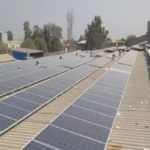
While calculating savings from roof top solar solutions…
Roof top solar solutions are becoming increasingly popular…
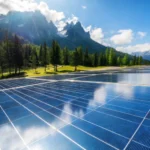
US Lawmakers Approve Tariffs on Solar Imports from Southeast Asia
US lawmakers vote to restore tariffs on solar imports from Southeast Asia, affecting pricing, supply, and the solar industry landscape.
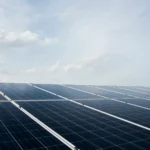
How Quickly Can Solar Panels Pay for Themselves? Payback Period Explained
Learn how the solar panel payback period works, factors that affect ROI, and how soon you can recover your solar investment.
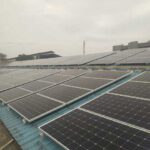
How a String Monitoring Box Works in Residential Solar Systems
Understand how a string monitoring box helps track and protect your home solar panels for maximum efficiency and safety
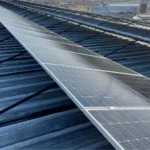
UPNEDA Solar Subsidy 2025: How to Maximize Savings on Rooftop Solar
Discover how the UPNEDA Solar Subsidy 2025 can help you cut electricity costs and make rooftop solar more affordable. Learn about eligibility, subsidy rates, and the step-by-step application process.

Solar Farm Development: Overcoming the Rising Challenge of Wiring Costs
Wiring costs are soaring in solar farms, affecting project budgets and timelines. Learn why infrastructure is becoming a key challenge.
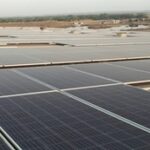
Indian solar market flooded with various Inverters – User discretion required
With Indian government’s target of 100 GW by Solar power,…
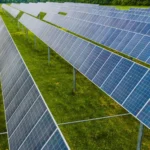
Everything You Need to Know About Net Metering
Discover everything about net metering – how it works, benefits, installation process, and how it helps you save on electricity bills.
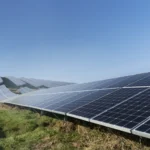
China’s Solar Industry Poised for Continued Growth in 2023 and Beyond
China’s solar industry is set for continued growth in 2023 and beyond, driving global renewable energy expansion and technological advancements.

Eco-Friendly Solar Panels: The Future of Sustainable Power
Eco-friendly solar panels are revolutionizing the way we generate clean energy. This blog explores their benefits, sustainable materials, and role in reducing carbon footprint while providing efficient energy solutions for residential, industrial, and commercial use. Learn why investing in eco-friendly solar technology is the future of sustainable power.